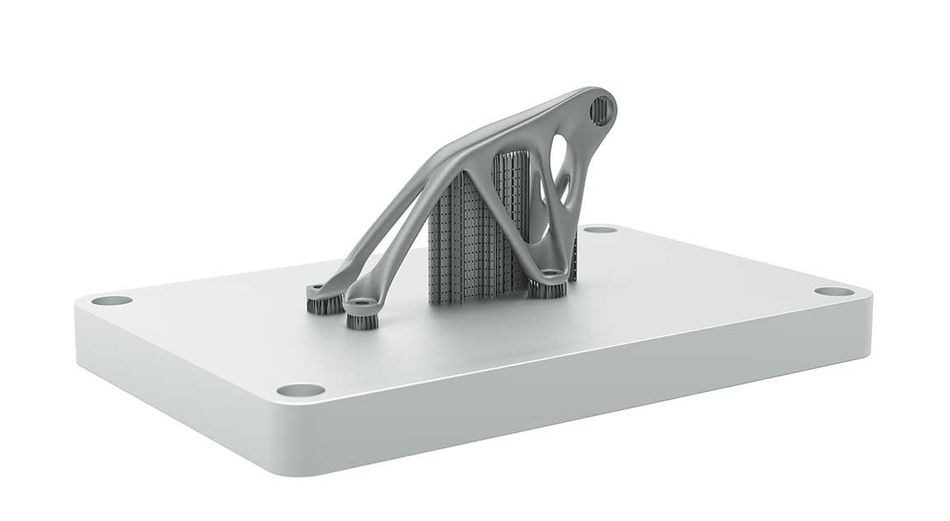AI-powered Engineering Technology for Data-driven Solutions
Article #5 Altair Startup Series. How startups can accelerate growth and effectively use artificial intelligence for quality assurance, data analytics, and other critical engineering tasks.

This is the fifth article in a six-part series that examines how startups can leverage physics and simulation software to accelerate their growth. In this article, we look at the ways data analytics and artificial intelligence (AI) can not only empower engineering but also impact various business units of a startup and other industry sectors, such as healthcare, government, insurance, gaming, marketing, and banking.
Even within engineering businesses, data analytics can assist their financial and organizational aspects to gain better insight into their activities company wide. With the incorporation of AI, better decision-making strategies arise from various analytic solutions that include valuable tools like visualization, scaling, and model prediction.
What is AI-powered engineering?
AI has the capability to take over work normally requiring a human brain, such as robots on an assembly line or a smart speaker telling you the weather. As a result, engineering can be brought to another level with AI—enabling hardware and software to perform engineering tasks without the engineer. A subset of AI is machine learning (ML), in which algorithms are continuously employed to make more accurate predictions based on historical data [1], for example, for predictive maintenance. Using AI and ML, traditionally manual tasks are performed with automation, and data can be analyzed to improve the processes, product design, etc.
This novel technology frees the engineer from the mundane, availing resources for higher-level work. [2] Generative design is an example of AI-powered engineering, where AI and ML are applied to create a design based on constraints and other design parameters. The design process that normally requires many time-consuming iterations by an engineer can yield an optimized product.

AI and the engineer
The fast pace of AI technology development is calling for engineers to be trained in AI design. While we engineers have used forms of AI for decades, such as CAD and simulation, more advanced digital technologies are being applied in all engineering disciplines. ASME reports the need for AI talent in “design, analysis, data analytics, bioinspired systems, intelligent automation, fault estimation, material synthesis, and factory automation.” Skills with AI tools like Python and TensorFlow, for example, enable many industries to harness AI’s capabilities in a wide range of areas. [3]
AI-powered engineering application extends from product development through production and includes many engineering tasks, like the following:
- Real-time process monitoring
- Defect prediction during software development [4]
- Defect detection of hardware [5]
Engineers can also apply AI to complex multiphysics projects with large datasets, allowing multidisciplinary groups can gain valuable knowledge from complicated models. In the end, innovative ideas result from various information sources.
So, while AI and ML may be removing tasks from the engineer’s plate, the engineer’s job is still secure as we adapt. Using AI and ML as the basis, we can focus on employing more advanced engineering tools to work alongside these ground-breaking technologies. [2]
AI-powered engineering for manufacturing and data analytics
More specifically, AI use in quality engineering services is becoming invaluable. Cutting-edge approaches for consistent data analysis require AI to aid quality assurance (QA) engineers. The end goal is to track down quality issues and determine the underlying drivers.
AI-powered engineering data analytics goes along with QA in manufacturing. Unlike with human labor, high-speed data during the manufacturing process can be assessed in real-time, and ML algorithms can be applied to sort out problem parts or malfunctioning machines. For example, an AI solution often involves cameras coupled with software to maintain quality. Although not necessarily a new technological approach, when we incorporate ML, we can train machines to learn detailed criteria quickly for quality assurance based on historical data—all at a pace and accuracy unattainable by humans and traditional software. [6]
With so much data available throughout a manufacturing process—through real-time equipment monitoring and product quality assessment—we can take advantage of data science knowledge and AI and achieve optimal solutions. With AI-powered tools, the result is an efficient, high-performing production line with insight from start to finish.
Other sectors benefitting from the power of AI
In addition to manufacturing, many other sectors can be enhanced by AI-powered data analytics. When running a business, engineering or otherwise, financial security is, of course, paramount. The efficient use of data can be applied to assess risk, find new customers, and optimize operations. With appropriate AI tools, organizations now have the power to transform the data into valuable insight regarding market conditions, market campaigns, fraudulent activity, and more. From company executives to data scientists, collaboration through AI and ML results in informed decision-making in real time.
The banking industry, in particular, requires significant data analytics with such high financial stakes. Banks can leverage AI-powered data analytics to optimize lending services based on predicted risk.
Impacts of AI-powered technology
Despite the pace of AI development, established companies, as opposed to smaller startups, seem to have benefitted most from these technologies. For instance, larger manufacturers already see the impact in QA—faster testing for real-time analysis, automated testing, error reduction, and root cause determination. [7] Cost savings comes from reduced non-destructive testing needs, smaller volumes of data storage, and simple implementation. [8]
This modern technology does not need to be limited to established corporations. While CAD was once a supplemental device to engineering, today it is a central piece of daily work. Similarly, AI tools make it conceivable for even engineering startups to investigate novel designs and keep up with the pace of the market. By utilizing AI to find methods in the data, machines can significantly assist with engineering judgment.
As a result, the effects of AI-powered engineering in industry yield higher productivity, accelerated innovation, and a new engineering field with AI.
Altair data intelligence packages offering data-driven solutions for many applications
Altair is making it easier for us to jump on the AI-powered bandwagon and stay viable in these highly competitive markets. The company offers AI no-code software solutions to new businesses in engineering along with other various markets, including banking, financial services, insurance, healthcare, telecommunications, and government.
Startups can enhance their data analytics in all areas with Altair—quality, warranty, finance, marketing, HR—for better decision-making. The Altair data analyst suite comprises a host of products and includes the following:
- Monarch–desktop-based, self-service data preparation
- Knowledge Studio–visual models that incorporate ML and various data analyses
- Panopticon—visual analytics of big data in real-time
- SmartWorks—end-to-end platform using AI, analytics, and Internet of Things for a collaborative approach
- HyperStudy—combining data science with simulation for multiphysics applications
- Compose—math-focused solution for data manipulation and visualization, programming, and debugging scripts
- Embed—nonlinear simulation and model-based firmware development using block diagrams and state charts
- Activate—comprehensive simulation for multiphysics analysis
These solutions enable your startup to use available data effectively and powerfully. Combining data analytics with AI yields strategies that can scale up with your company. Altair’s no-code, cloud-based options allow for manageable data preparation, modeling, and visualization, bringing ease to small, growing businesses as they work to streamline their processes.
What is the Altair Startup Program?
The Altair Startup Program gives small startups affordable options to use Altair software. The Altair Data Intelligence package is a two-year package designed for startups in any industry for their AI-powered engineering needs.
The package includes the following:
- Discounted access to the Altair data analytics solutions
- Joint marketing opportunities
- Online training
- Up to 16 hours of training
To qualify for the Altair Startup Program, your company must have these characteristics:
- Established less than five years ago
- Earn less than USD 5 million in annual revenue
Article One demonstrates how access to simulation software assists the next generation of, hardware teams.
Article Two shows how mobility startup, URWHAN Bikes, benefited from Advanced Computer Integrated Technology.
Article Three talks about the way simulation software can enable startups to innovate with agility and speed.
Article Four speaks about how simulation is helping startups set the direction of the e-mobility industry.
Article Six explores how startup programs, including Altair's, can lower that access barrier for entrepreneurs.
Bibliography
[1] [Online]. Available: https://www.techtarget.com/searchenterpriseai/definition/machine-learning-ML
[2] [Online]. Available: https://www.forbes.com/sites/bernardmarr/2020/02/07/how-is-artificial-intelligence-and-machine-learning-used-in-engineering/?sh=7f175c444a85
[3] [Online]. Available: https://www.asme.org/topics-resources/content/6-ai-and-machine-learning-tools-for-engineers
[4] M. Jorayeva, A. Akbulut, C. Catal and A. Mishra, “Machine Learning-Based Software Defect Prediction for Mobile Applications: A Systematic Literature Review,” Sensors, vol. 22, no. 2551, 2022.
[5] [Online]. Available: https://blog.vsoftconsulting.com/blog/how-we-solve-defect-detection-with-artificial-intelligence
[6] [Online]. Available: https://www.automationworld.com/factory/sensors/article/21198005/how-artificial-intelligence-works-in-quality-control
[7] [Online]. Available: https://www.rtinsights.com/qa-increasingly-benefits-from-ai-and-machine-learning/
[8] [Online]. Available: https://www.metal-am.com/articles/a-game-of-hide-and-seek-with-renishaw-and-altair-artificial-intelligence-powered-quality-assurance-on-the-fly/

